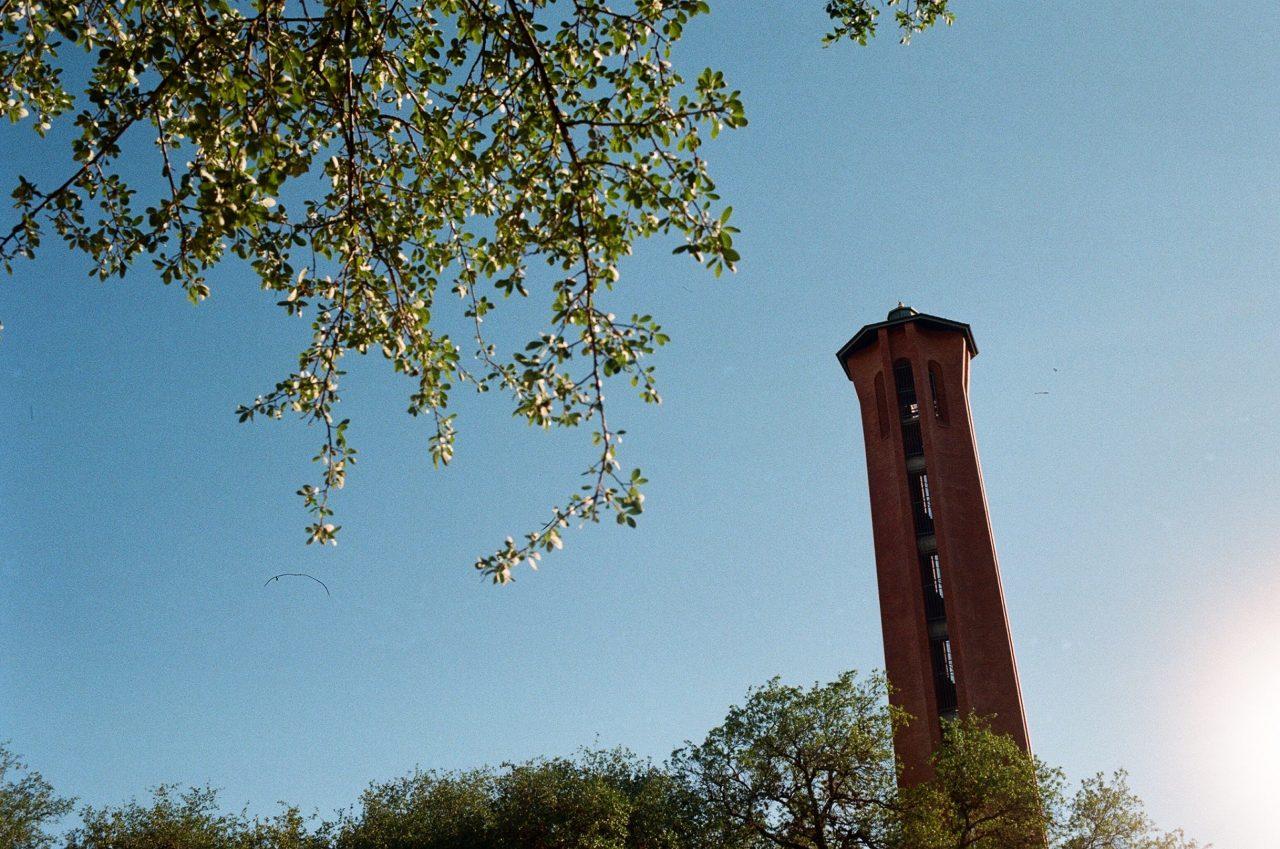Photo by Kathleen Creedon
This article is a part of the Trinitonian’s coverage of Trinity University’s response to the novel coronavirus (COVID-19). Click here to read the rest of our coverage.
Since its announcement of online classes and residence hall closures, Trinity remained an open campus. However, a minute after midnight on March 19, the university officially transitioned from “open” to “functioning remotely.”
According to the university’s COVID-19 website, the university has temporarily suspended most on-campus operations, as it transitions to remote work. However, the campus — with the exclusion of residence halls, athletic facilities and the library — is still open to students, so long as they have their Tiger Card.
“We remain open as a University serving our students, and to the best of our ability we will do that in a context that is greatly ‘de-densified’ to allow for increased physical distance as well as the opportunity to work remotely in every case where this is possible,” the statement reads. “Beginning at 12:01 a.m. on March 19, all buildings will go to ‘card access’ 24 hours a day.”
That includes student workers.
“We are not allowing students back on campus to work,” said Eric Maloof, vice president for Enrollment Management. “But what we do need you to do is get in touch with your direct supervisor and see if you can continue that work remotely.”
Maloof and three other administrators addressed students’ questions in a live stream Q&A the same day of the transition to “functioning remotely.” David Tuttle, dean of students and associate vice president for Student Life; Michael Soto, associate vice president for Academic Affairs; and Tess Coody-Anders, vice president for Strategic Communications and Marketing, also answered questions.
Coody-Anders addressed working remotely during the live stream.
“For faculty and staff, the campus is generally trying to follow a standard of working remotely. So staff in particular will not be in their offices unless they’re considered very essential staff to keeping campus operations going,” Coody-Anders said. “So it’s not just de-densifying and social distancing with students, we’re also practicing that with staff.”
However, since most students are no longer on campus, the questions included concerns about what formerly on-campus events and activities will look like for the rest of the semester.
According to Tuttle, the Office of Student Involvement has already been in touch with student groups and leaders.
“With the distancing that’s happening, there are going to be some challenges,” Tuttle said. He gave the example of the Student Leadership Awards, which he said the university may hold virtually. “It will miss the personal touch, obviously.”
Earlier this week, the university closed residence halls and the athletic facilities within the Bell Center. The new “functioning remotely” status falls in-line with the university’s decision to close residence halls.
“The whole idea is to de-densify the campus because we’re not equipped should we get any cases on campus or have to quarantine people. We don’t have the staff and resources to care for those students,” Tuttle said during the live stream.







